
Essential Singlish Terms and Phrases You'll Need in Singapore
The coach is 15 minutes away! Don't be so kiasu lah! 8. Blur. Blur face (Credit: Shutterstock) Translation: Characteristic of a person who is confused or slow to catch on. Blur is one of the Singlish words that have more than one meaning. It can also be used in phrases, such as "act blur" and "blur like sotong".

10 commonly used Singlish words and their definitions Singapore
Singlish (a portmanteau of Singapore and English); formally known as Colloquial Singaporean English, is an English-based creole language originating in Singapore.. The term Singlish refers to a blend of Singaporean slang and English and was first recorded in the early 1970s.
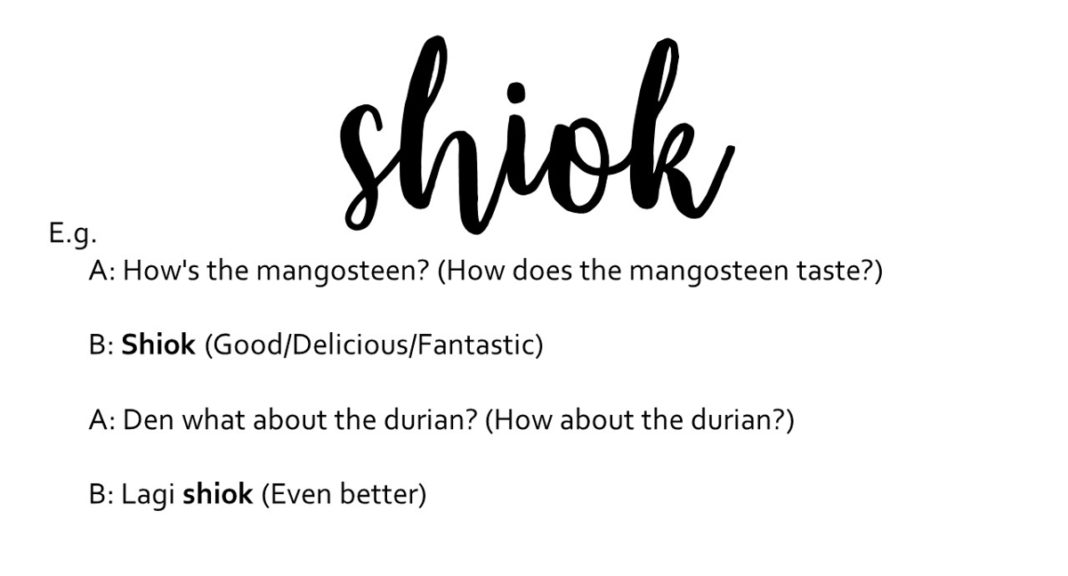
Singlish 101 11 Essential Singlish Terms to Get Around Singapore The
Atas (ah-taas) / snobbish or high-class. 'Atas' is what the layman Singaporean sees as fancy, expensive or high-class (and in some cases, even snobbish). A more fun term to describe someone 'acting atas' is to call them a 'yaya papaya'. Spoil Market (spoy-mah-ket) / Overachieve.

I learnt Singlish! 🇸🇬 Trying SINGAPOREAN SLANG YouTube
Example: "This design really CMI, even my toddler can draw it.". 17. Come, I clap for you. What it means: A sarcastic way of praising someone. Example: "You finally cleaned your room after an entire year. Come, I clap for you.". 18. Diam. What it means: It's used to tell someone to shut up, typically in an angry way.

20 Singlish Phrases Useful For Your Travel To Singapore Singapore
Singlish vocabulary. Singlish is the English-based creole or patois spoken colloquially in Singapore. English is one of Singapore's official languages, along with Malay (which is also the National Language), Mandarin, and Tamil. [1] Although English is the lexifier language, Singlish has its unique slang and syntax, which are more pronounced in.
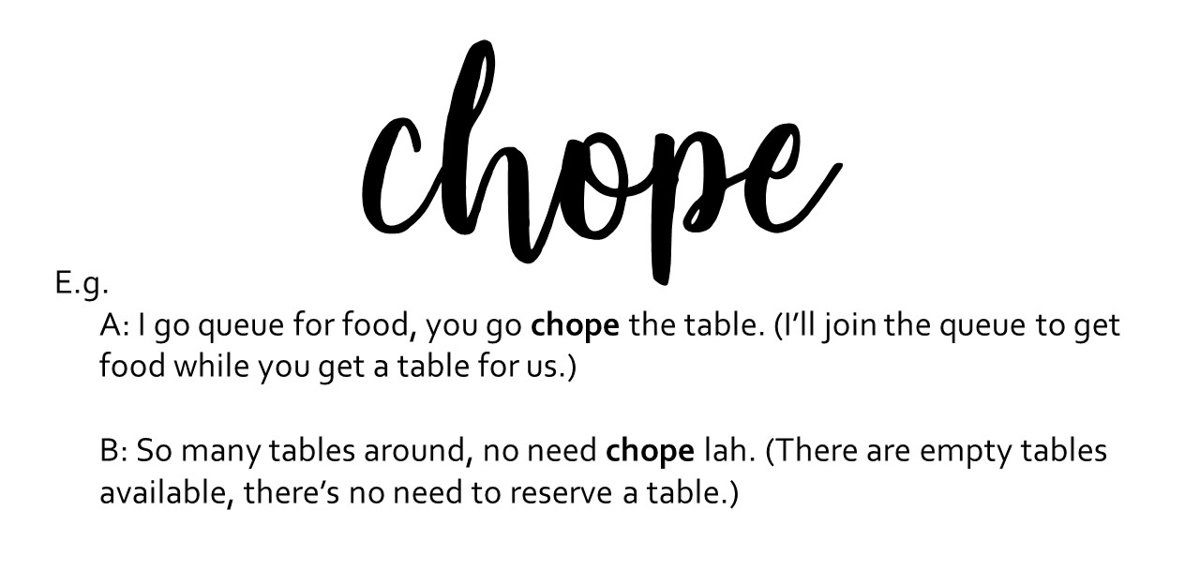
Singlish 101 11 Essential Singlish Terms to Get Around Singapore The
Singlish incorporates slang from many languages and dialects including Malay, Hokkien, and Teochew, so it might be pretty challenging to master if you don't speak any of them. But fear not! Here is a list of essential Singlish phrases and words to use while in Singapore that might garner you a bit of praise from locals. Lah/Lor/Leh. Before.

Singlish 101 Words & phrases you really need to know
The Singlish slang is also discussed by linguists in at least 7 Universities from Italy to Japan. However, there has never been a complete or updated list (Singlish Dictionary is obsolete) of all Singlish terms, Singlish phrases or Singlish words published anywhere on the net.

Singlish Singaporean English Slang Stock Vector Illustration of
They are, however, related. Both slang and jargon convey information about the speaker themselves, and also what the speaker is saying. Workplace jargon is essentially corporate-speak, commonly used in business meetings or the usual water-cooler talk, whilst slang is typically used in office chit-chats.

Singlish guide 51 words and phrases you need to know
The unique slang of "Lah, Leh and Lor" rolls off the tongue of every Singaporean, and when you think about it. It's almost like the universal "Do, Re, Mi". To get into the groove like the Singaporean version of the Von Trapp Family and learn how to use these 7 common Singlish Words in your daily conversations.

15 Common Singlish Words You Need To Know To Speak Like a Local
What it means: An expression of pleasure and satisfaction This is probably a very common slang in Singlish dictionary, and one used quite often. Originally a Malay expression, shiok is often used in a feel-good situation, to express the sense of pleasure or satisfaction over something. As a foreigner, you can use this expression after a particularly satisfying meal.
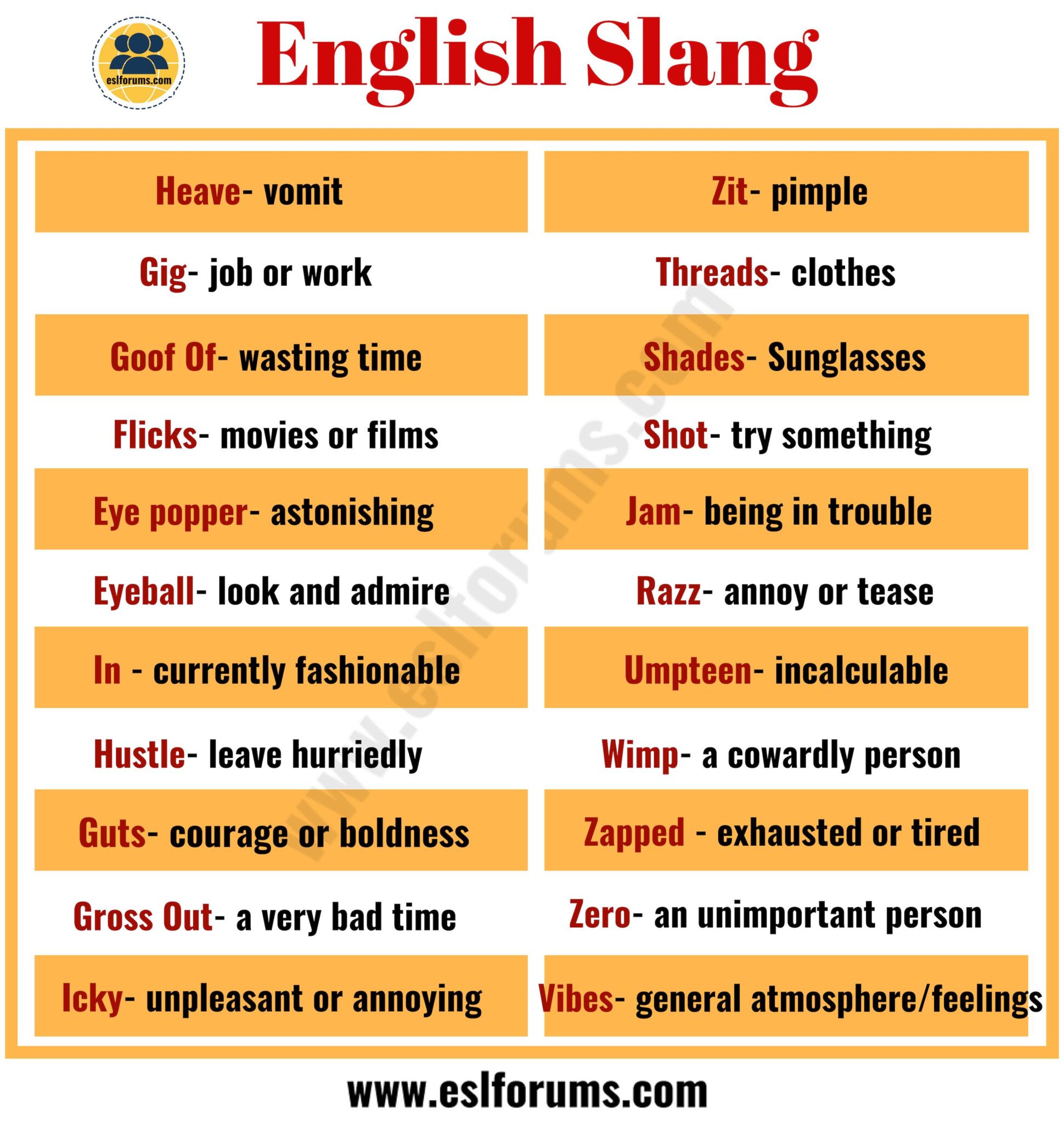
Slang Words List of 100 Common Slang Words & Phrases You Need to Know
Singaporean slang words - A guide to Singlish. Hearing Singaporean slang like, "WAH, SO FAT ALREADY AH!" or "AH BOY, MAMA MISS YOU LEI," is so heart-warming especially when you step into Changi Airport after being away from home for a long time. Something about hearing Singlish always hits home after an eternity of trying to convince the world that Singapore isn't part of China.
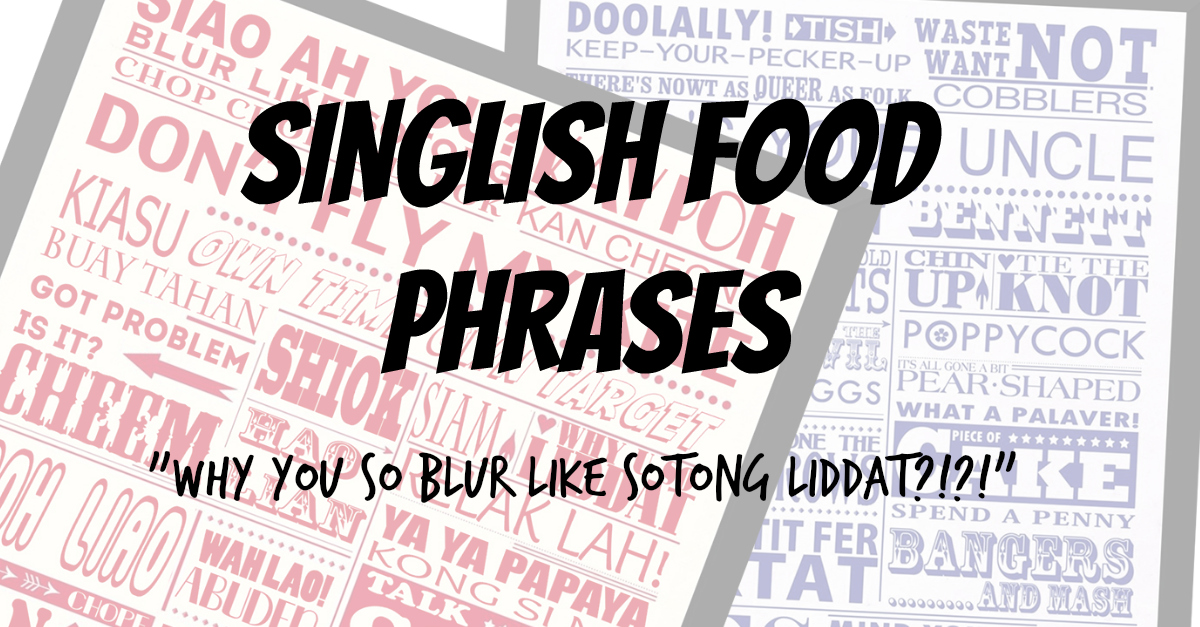
5 Singlish Phrases What They Mean & Where To Eat That Food!
Singlish also incorporates a lot of slang and colloquialisms, making it more expressive and colorful than standard English. singlish. Today, Singlish is a part of Singaporean identity and culture. It is widely spoken in everyday conversations, in the media, and in popular culture. While some Singaporeans may still feel that standard English is.

Singlish guide 51 words and phrases you need to know
Chicken Feed. Posted on August 6, 2018 by Singaporean. Chicken Feed Origin: Singlish - The term is used to describe a task that is easy to accomplish, just like a piece of cake. Chicken Feed is Singlish's very own version of the english phrase "a piece of cake". It is akin to describing that a task is easy or a problem that can be […]

Singaporeans Try Old Singlish Slangs YouTube
The term Singlish is a blend of Singaporean slang and English and was first recorded in the early 1970s. English is one of Singapore's official languages, along with Mandarin, Malay and Tamil. Although English is the lexifier language, Singlish has its unique slang and syntax, which are more pronounced in informal speech..

Singlish guide 51 words and phrases you need to know
Kiasu is a prominent term in Singaporean slang, better known as Singlish. It reflects the insecurities and fear of losing that are deeply ingrained in the local culture. Derived from the Chinese dialect Hokkien, kiasu can be loosely translated as "afraid to lose."
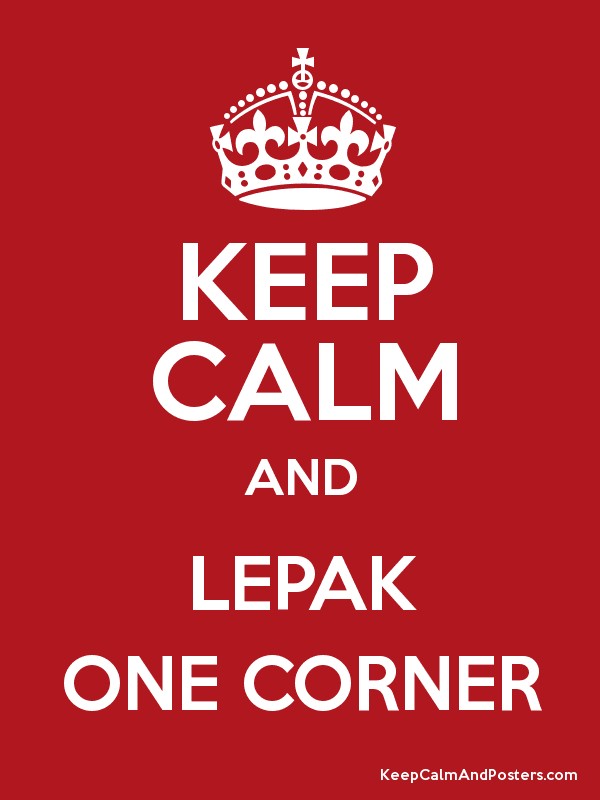
125 EASY Singlish Words & Phrases You Must Know 2020 Ultimate Guide
Shiok (shee-oak): Use this Singaporean slang to express your immense pleasure from an experience such as eating or sightseeing. Example: "Eating nasi lemak very shiok!". Sian (see-an): Another Hokkien word that conveys boredom, tiredness or frustration towards something. Example: "Doing work on a Saturday is so sian.".